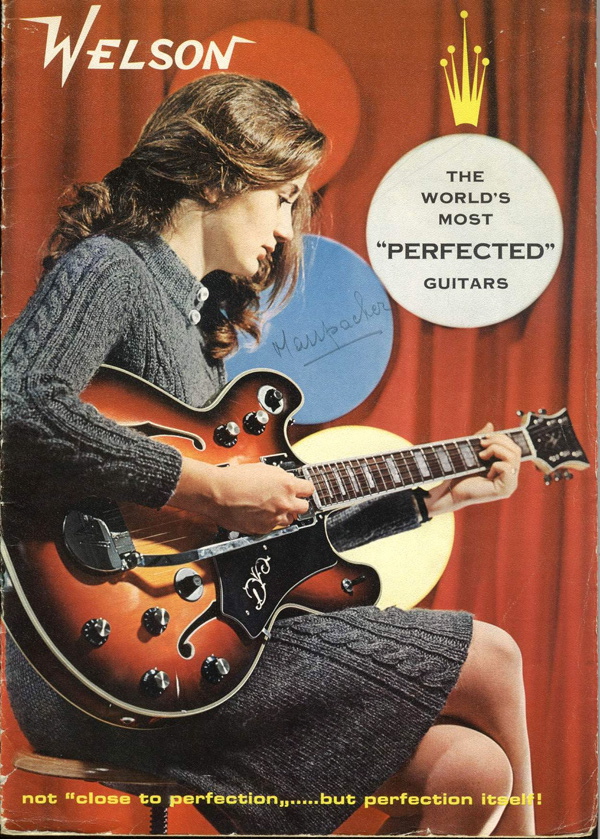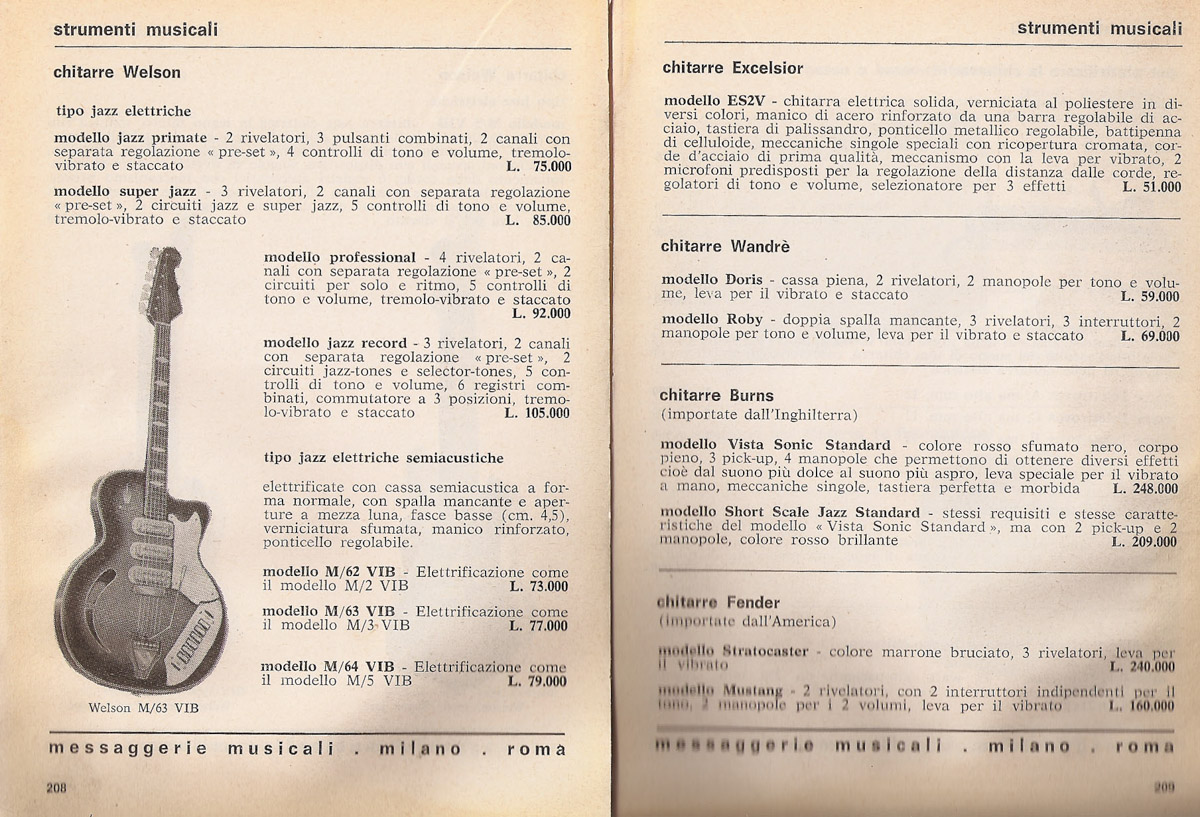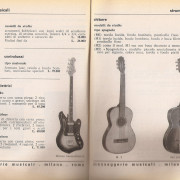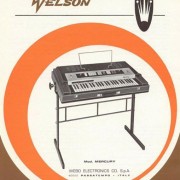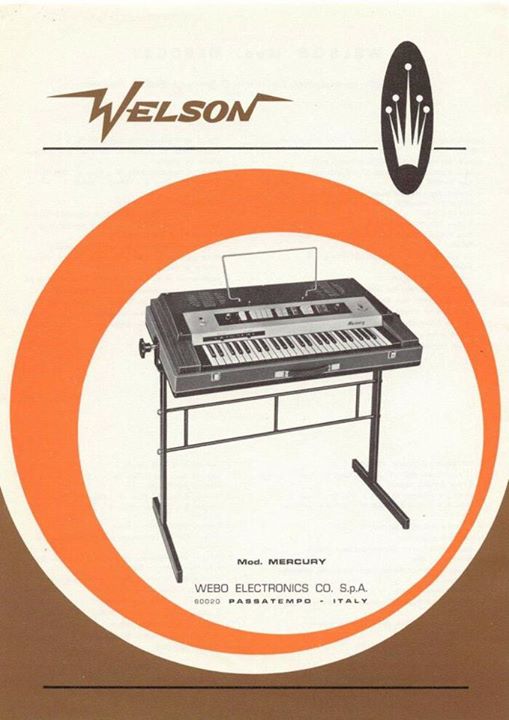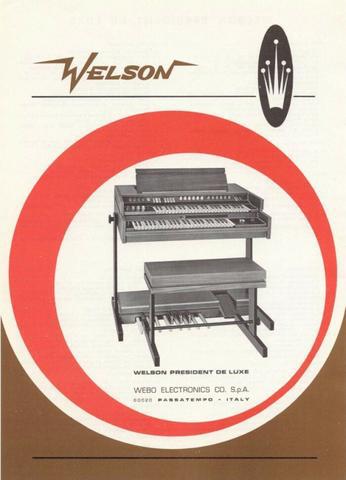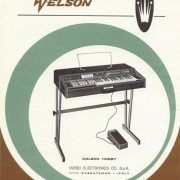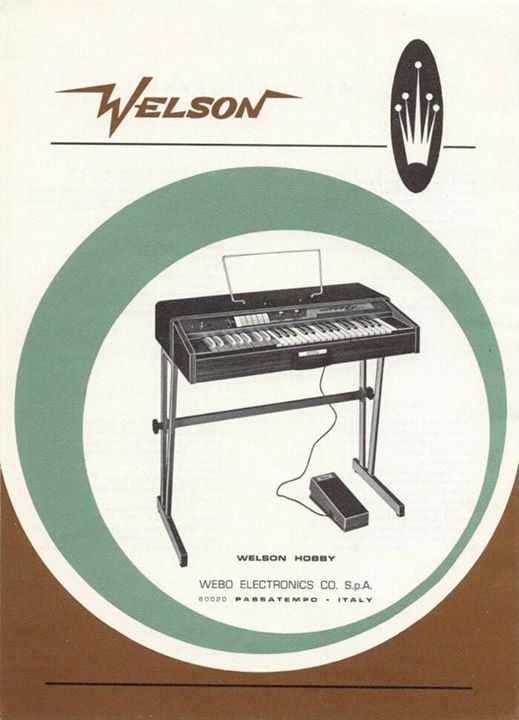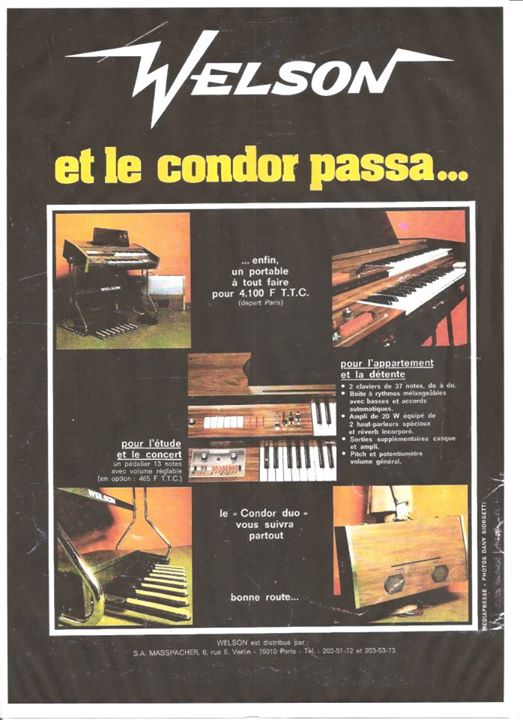Welson
by Jack Marchal
The trade name Welson belonged to a Castelfidardo-based accordion making company founded by Orlando Quagliardi in 1921.
The company was among the very first ones to enter guitar manufacturing in the area. I’ve seen old Welson acoustic archtops, quite similar to mid-50’s German-made instruments, that looked as old as the earliest examples of Eko 100.
Its first electric solidbodies (1962-1964) make Welson appear to be some kind of a subsidiary to the Bartolini-Gemelli galaxy, though some details betray a care of seriousness that put those guitars apart and is typical of Welson. After 1964 the initial design evolves without discontinuity towards a second generation of generally sunburst finished solidbodies, equipped with more conventional controls than the previous pushbuttons stripes.
In this second half-decade the focus in the manufacturing program shifts gradually towards semi-acoustic archtops, mainly a classic single cutaway jazz box and a ES-335-inspired thinline, both being aimed at professional musicians. Welson takes at that time a status like being Italy’s Gibson. The instruments, acoustics included, are brandmarked with some kind of austere luxury ugliness (just like Gibsons indeed).
In the early 70’s Welson made LesPaul and SG copies, as could be expected, then specialized on electronic keyboards. However some kind of custom shop was maintained throughout the 70′s to supply high quality boutique guitars. The Quagliardi company ceased activity in 1981.
This maker used mainly two pickup models during the 60′s. First were used the same twin coil items as Crucianelli, Bartolini, Gemelli and others, with just another packaging (Welson choose a sort of wafer or caterpillar embossed metal cover), then after 1967 humbuckers, easy to identify with their six screws and the two part magnetic bar, of truly exceptional quality (no noise, high output). Here again the comparison with Gibson comes to mind.
While Quagliardi and Welson accordions never were really common, Welson guitar production reached a large scale, in Italy second only to Eko and Crucianelli. But rather than struggling for 1 percent sales share in music shops of Milan or Rome the company preferred to concentrate on remote markets, taking advantage of the image of near professional seriousness associated to its instruments. Welson guitars are easy to find in France, Belgium and Holland, they are not rare in the rest of the Western world… with the ironic exception of Italy, where they are virtually ignored.

